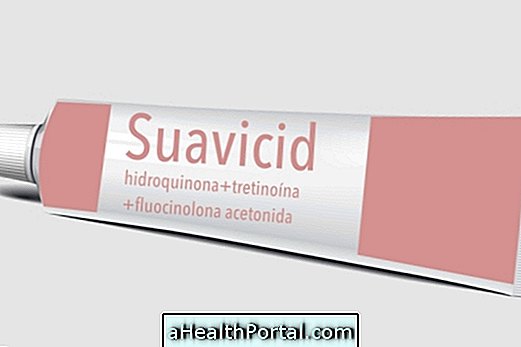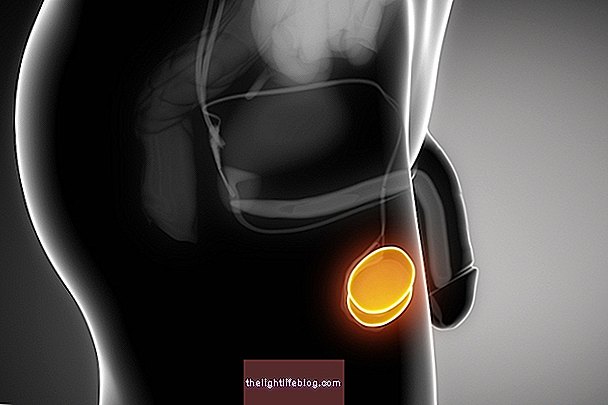To have less risky surgery and faster recovery, it is important to stop using some medicines, especially those that ease the risk of bleeding or bring about some type of hormonal decompensation, such as AAS, Clopidogrel, anticoagulants, anti-inflammatories, or some remedies for diabetes, for example.
Many medications should also be evaluated on a case-by-case basis, such as contraceptives and antidepressants, which are discontinued in people at higher risk of having a reaction. Other medications, such as antihypertensives and chronic corticosteroids, need to be kept and taken even on the day of surgery, as their discontinuation may lead to hypertensive spikes or hormonal decompensation during surgery.

Thus, since each type of medicine has its specific characteristics, it is important that a list is made and informed to the doctor, including homeopathic or others that do not seem important, prior to surgery, in order to avoid any risk of misuse of at the time of the surgical procedure.
In addition, other precautions should be taken, such as stopping smoking, avoiding alcoholic beverages, and maintaining a balanced diet during the days before and after the operation. See more details on how to take care before and after surgery.
1. Antiplatelet agents
Antiplatelet medications, such as AAS, Clopidogrel and Ticagrelor, popularly used to thin the blood, are prohibited from being used before surgery, and should be discontinued 7 to 10 days before, or as directed by your doctor.
2. Anticoagulant medications
People who use coumarin-type anticoagulants, such as Marevan or Cumadin, can undergo surgery only after their suspension, and it is necessary that the coagulation levels, evaluated by the INR test, are within normal limits.
People using the new anticoagulants, such as Rivaroxabano, Apixabano and Dabigratano, may not need to discontinue medication for minor surgeries such as dermatology, dental surgery, endoscopy, and cataract surgery. However, if they are more complex surgeries, these medications can be discontinued for a period ranging from about 36 hours to 4 days, depending on the size of the surgery, and the person's health conditions.
After stopping the anticoagulants, the doctor may indicate the use of injectable heparin, so that in the period that the person is without medication, there is also no increased risk of complications such as thrombosis and stroke, for example. Understand the indications for heparin and how to use it.
3. Anti-inflammatory drugs
Anti-inflammatories should not be used prior to surgery because they also interfere with the blood's ability to coagulate, and can only be used for up to 3 days before the procedure.
4. Hormonal therapies
Contraceptives do not need to be stopped before small surgeries and in women who have a low risk of having some type of thrombosis. However, in the case of women at increased risk, such as those who have a prior or family history of thrombosis, for example, their use should be discontinued 6 weeks earlier and in this period another type of contraceptive method should be used.
Hormone replacement therapy, such as Tamoxifen or Raloxifene, should be withdrawn in all women 4 weeks prior to the surgical procedure because their hormone levels are higher, therefore they pose a greater risk of thrombosis.

5. Diabetes Remedies
Tablets for diabetes of various types, such as Glimepiride, Gliclazide, Liraglutide and Acarbose, for example, should be discontinued the day before surgery. Metformin, however, should be discontinued 48 hours earlier because it provides a risk of triggering a blood acidosis during surgery. In the period after discontinuation of medications, it is important that blood glucose be monitored and, in cases of increased blood glucose, insulin should be used.
When the person makes insulin, it should be continued, except for long-acting insulins such as Glargine and NPH, in which the doctor can reduce his dose by half or 1/3, so that the risk of hypoglycaemia during surgery.
6. Cholesterol Medications
Cholesterol medicines should be stopped 1 day before surgery, and only statins such as simvastatin and atorvastatin, for example, may be kept as they do not cause any risk during the procedure.
7. Treatment of rheumatic diseases
Remedies for diseases such as osteoporosis, rheumatoid arthritis and gout, for example, should be discontinued the day before surgery.
8. Phytotherapeutic Remedies
Medicinal plants and herbal remedies should be taken with care, always informing the physician of their use to assess the need for suspension before surgery.
Arnica and vitamin C are used by some people before surgery to prevent the formation of purple spots and improve immunity, however, should be avoided in the week prior to surgery or as directed by the attending physician.
Other herbal remedies that should be stopped are Ginkgo biloba, Ginseng, Valerian, St. John's Wort and garlic tea as they increase the risk of bleeding, and should be stopped 7 days before the procedure, and Kava-kava used as natural anxiolytic, should be discontinued 24 hours before surgery.
In addition, caffeine-rich beverages and supplements such as coffee, green tea and black tea should also be avoided in the week prior to surgery.

After the surgical procedure, the remedies will be returned according to the medical indication, depending on the recovery and reduction of the risks of side effects. Also, find out what are the main precautions you should take to recover faster from surgery.
Remedies that can be kept
The medicines that should be kept, even on the day of surgery and during the fast, are:
- Antihypertensives and antiarrhythmics, such as Carvedilol, Losartan, Enalapril or Amiodarone;
- Chronic use of corticosteroids, such as prednisone, should be maintained and, if it is a dose greater than 20 mg per day, it may be necessary to increase the dose a little before the procedure if indicated by the physician;
- Remedies for asthma such as Salbutamol, Salmeterol or Fluticasone, for example;
- Treatment of diseases of the thyroid, with Levothyroxine, Propiltiuracil or Methimazole;
- Remedies for gastritis and reflux, such as Omeprazole, Pantoprazole, Ranitidine and Domperidone, for example, may be continued if necessary;
- Treatment for infections, with antibiotics, can not be discontinued;
Some medications can be safely maintained, such as anti-anxiety drugs, antidepressants, and anticonvulsants. Although they are not contraindicated prior to surgery, their use should be discussed with the surgeon and anesthesiologist, as they can interfere with some types of anesthesia and increase the risk of complications.


















